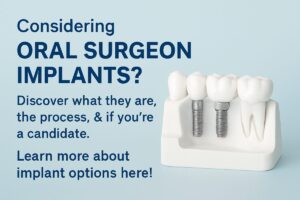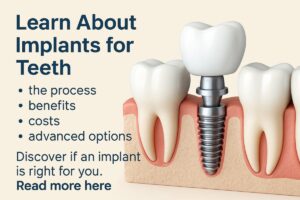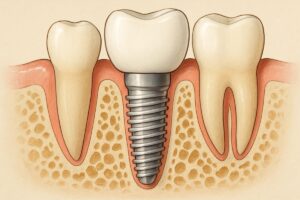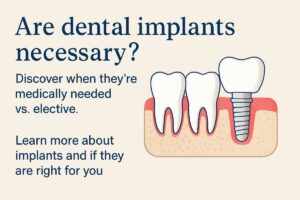If you’re weighing the pros and cons of full mouth dental implants, this guide will help. Read on to learn what full-arch implants are, why many patients choose them, the common drawbacks to consider, who makes a good candidate, what the treatment looks like, and sensible questions to ask before you commit. This is for adults considering a permanent alternative to removable dentures or multiple failing teeth.
What Are Full Mouth Dental Implants?
Full mouth (full-arch) dental implants use a set of dental implants to support a complete arch of replacement teeth. Instead of replacing one tooth at a time, a prosthetic arch attaches to several implants to restore an entire top or bottom row. They differ from single-tooth implants and removable dentures by offering fixed, stable teeth that feel and function more like natural teeth.
Pros: Why Patients Choose Full Arch Implants
Restored chewing and speech
Full-arch implants anchor a prosthetic securely, improving chewing efficiency and clearer speech compared with loose or slipping dentures.
Natural look and improved confidence
Modern prosthetics mimic natural teeth and gum shape, giving a more natural smile and often boosting self-confidence.
Bone preservation and facial support
Implants stimulate the jawbone, reducing the bone loss that follows missing teeth and helping maintain facial structure.
Long-term durability vs. removable options
With good care, implant-supported arches last many years—often decades—making them more durable than removable dentures.
Fewer long-term visits and simpler daily care
Daily care is like natural teeth: brushing and flossing. Over time, implants usually need fewer adjustments than removable prosthetics.
Cons: Potential Drawbacks To Consider
Higher initial cost
Full mouth implants cost more up front than dentures. Many patients find the long-term value worthwhile, but the initial investment is significant.
Surgical risks and healing time
Implant placement is surgery. Risks include infection, bleeding, and slow healing. Recovery can take weeks to months for full integration.
Pain, swelling, and temporary eating limits
After surgery patients often have soreness, swelling, and a soft-food diet for a short period.
Possible need for future maintenance or repairs
Prosthetics and screws may need adjustments or repairs over time. Maintenance is usually simpler than dentures but still possible.
Not every patient is an immediate candidate
Some people lack sufficient bone, have uncontrolled health issues, or smoke heavily. Options exist, but extra procedures or planning may be needed.
Who Is A Good Candidate?
Good candidates are adults in generally good health who want a permanent solution for a full arch of missing or failing teeth. Key factors include:
- Overall health and controlled chronic conditions (diabetes, heart disease)
- Oral health and gum disease under control
- Non-smoker or willing to stop smoking before and after surgery
- Sufficient jawbone or willingness to undergo bone grafting or alternative implant techniques
For readers in Austin, TX, the pros and cons of full mouth dental implants in Austin, TX are evaluated during a CBCT scan and exam to determine the best approach for individual bone and health needs.
Treatment Workflow: What To Expect
Consultation and 3D imaging
A consult with 3D CBCT imaging maps bone, nerves, and sinus locations. Treatment options and costs are discussed.
Surgical placement (same day teeth vs staged)
Some patients get temporary fixed teeth the same day as implant placement; others receive staged treatment with healing time between steps.
Temporary prosthesis and final restoration
Temporary teeth protect healing sites and restore function while the final custom prosthetic is crafted.
Typical recovery timeline and follow-up
Initial healing is days to weeks; implant integration takes a few months. Regular follow-ups ensure proper healing and fit.
Risks, Complications, And How They’re Reduced
Common issues include infection, implant failure, nerve irritation, and sinus complications. Modern planning and guided surgery reduce these risks by:
- Using CBCT scans for precise planning
- Employing computer-guided surgical guides for exact implant placement
- Offering sterile surgical protocols and antibiotic protocols when indicated
- Using advanced implants (e.g., zygomatic) when bone is limited to avoid grafting
Cost, Insurance, And Financing Basics
Cost varies by complexity. Factors include number of implants, need for bone grafting or sinus lifts, temporary and final prosthetics, and lab work. Insurance may cover parts of treatment (extractions or some prosthetic work) but often not full implant costs. Common financing options include payment plans, healthcare credit cards, and third-party medical financing.
Questions To Ask Before You Commit
- How many full-arch cases have you performed and what are your success rates?
- Do you use CBCT 3D imaging and guided surgical planning?
- Will you handle my surgery and final restoration or refer me out?
- What are my sedation options and recovery expectations?
- Who makes the prosthetic—an in-house lab or an outside lab—and what warranties exist?
About a Specialty Full-Arch Implant Center and Provider
A specialty center focused on full-arch implants can simplify care and improve outcomes. At a dedicated implant practice in Austin, TX, patients benefit from integrated services—3D imaging, guided surgery, digital design, and on-site lab work—all coordinated by an experienced implant dentist. This approach shortens timelines and improves fit and function of the final teeth.
At Union Dental Implant Center, Dr. Adam Carter combines surgical experience with digital workflows and on-site milling and 3D printing to personalize full-arch restorations. Advanced options like zygomatic or pterygoid implants and PRP therapy are available for complex bone cases.
Next Steps: How To Learn If Full Mouth Implants Are Right For You
Schedule a consultation for a thorough exam and CBCT scan. Bring your medical history, current dentures or recent dental records, and a list of questions. A customized plan will clarify whether full mouth implants are your best long-term option and what to expect for cost and recovery.


